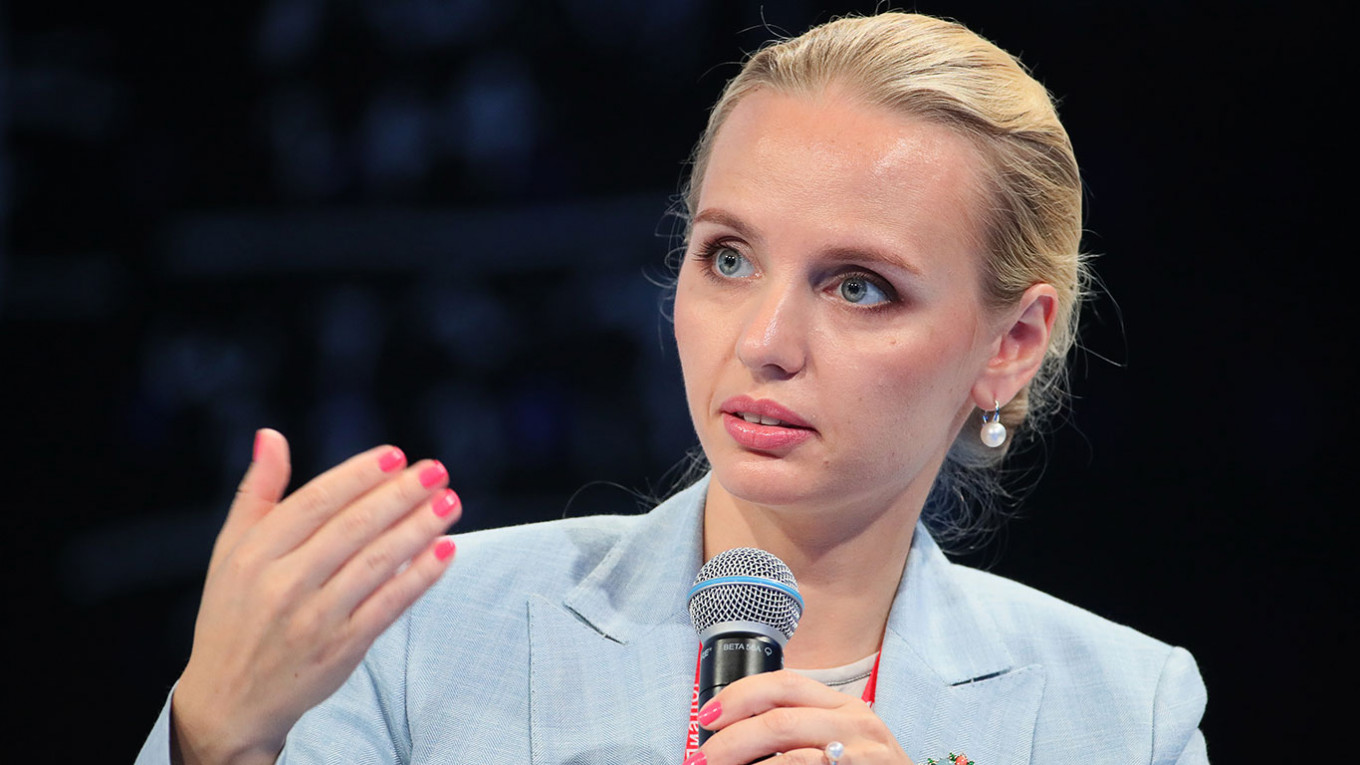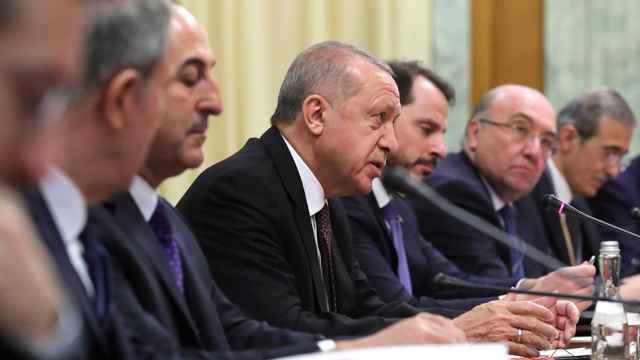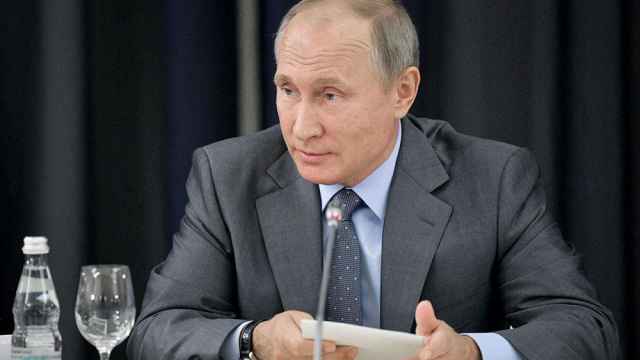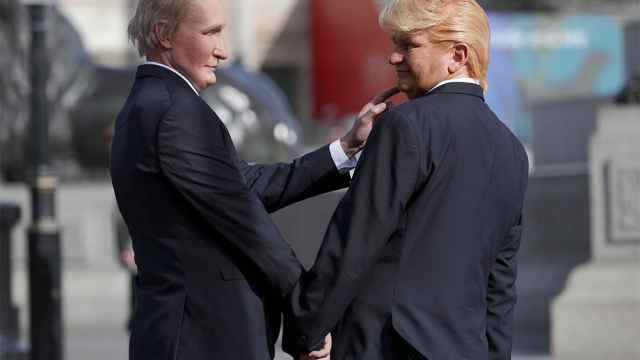The White House announced sanctions Wednesday targeting Russia's top public and private banks and two daughters of Vladimir Putin, adding more pressure on the country's economy and its elite over the invasion of Ukraine.
The new sanctions targeted Maria Vorontsova and Katerina Tikhonova, two adult daughters of Putin's with his former wife Lyudmila Shkrebneva.
Also hit with new sanctions were the wife and daughter of Russian Foreign Minister Sergei Lavrov and members of Russia’s Security Council, including former President and Prime Minister of Russia Dmitry Medvedev and Prime Minister Mikhail Mishustin.
"These individuals have enriched themselves at the expense of the Russian people. Some of them are responsible for providing the support necessary to underpin Putin’s war on Ukraine," the White House said in a statement.
"We believe that many of Putin's assets are hidden with family members, and that's why we're targeting them," a senior U.S. official told reporters, referring to the two daughters.
The White House also declared "full blocking" sanctions on Russia's largest public and private financial institutions, Sberbank and Alfa Bank, and said all new U.S. investment in Russia was now prohibited.
And it said that new sanctions would be announced tomorrow on key Russian state enterprises, aiming to hamper their ability to trade and move money through the global financial system.
"The sickening brutality in Bucha has made tragically clear the despicable nature of the Putin regime," the official said, referring to evidence of deliberate murder of civilians by Russian forces in a suburb of Kyiv.
"Today, in alignment with G7 allies and partners, we are intensifying the most severe sanctions ever levied on a major economy," the official said on grounds of anonymity.
A Message from The Moscow Times:
Dear readers,
We are facing unprecedented challenges. Russia's Prosecutor General's Office has designated The Moscow Times as an "undesirable" organization, criminalizing our work and putting our staff at risk of prosecution. This follows our earlier unjust labeling as a "foreign agent."
These actions are direct attempts to silence independent journalism in Russia. The authorities claim our work "discredits the decisions of the Russian leadership." We see things differently: we strive to provide accurate, unbiased reporting on Russia.
We, the journalists of The Moscow Times, refuse to be silenced. But to continue our work, we need your help.
Your support, no matter how small, makes a world of difference. If you can, please support us monthly starting from just $2. It's quick to set up, and every contribution makes a significant impact.
By supporting The Moscow Times, you're defending open, independent journalism in the face of repression. Thank you for standing with us.
Remind me later.






